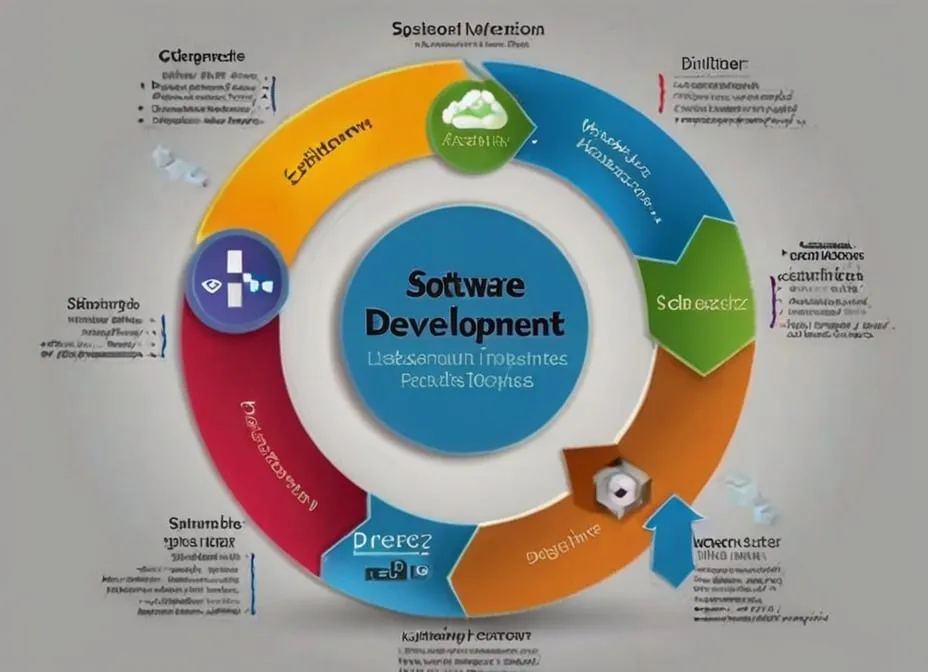The Race for Quantum Supremacy: Who Will Win? A Comprehensive Guide

1. Introduction to Quantum Supremacy
1.1. What is Quantum Supremacy?
Quantum supremacy is a term that refers to the point where quantum computers can perform specific calculations faster than the world's most powerful classical computers. It's a milestone that researchers and tech giants have been racing to achieve, as it would demonstrate the superior capabilities of quantum computing over traditional computing methods.
1.2. The Significance of Achieving Quantum Supremacy
Reaching quantum supremacy would be a breakthrough in the field of quantum computing. It would validate the potential of quantum computers to solve certain problems exponentially faster than classical computers, paving the way for transformative applications across various industries.
1.3. The Potential Impact on Various Industries
The achievement of quantum supremacy could have far-reaching implications for industries such as cryptography, drug discovery, materials science, finance, and artificial intelligence. Quantum computers could revolutionize these fields by tackling complex calculations and simulations that are currently impractical or impossible for classical computers.
1.4. The Race to Reach Quantum Supremacy First
The race to reach quantum supremacy has become a global competition, with tech giants, research institutions, and governments investing heavily in quantum computing research. Companies like Google, IBM, Intel, and others are vying to be the first to achieve this milestone, as it would not only be a significant technological achievement but also provide a competitive advantage in various domains.
2. Key Players in the Quantum Supremacy Race
2.1. Google and Its Quantum Efforts
Google has been at the forefront of the quantum supremacy race with its Sycamore quantum processor. In 2019, the company claimed to have achieved quantum supremacy by performing a specific calculation in 200 seconds, which would have taken the world's most powerful classical computer approximately 10,000 years.
However, this claim has been met with some skepticism from other researchers and companies, who argue that the task chosen by Google may not be representative of real-world applications.
2.2. IBM's Quantum Computing Advancements
IBM has been a pioneer in quantum computing research and has developed several quantum processors, including the 127-qubit "Eagle" processor. The company has also made significant contributions to the development of quantum algorithms and software tools.
IBM has taken a different approach to quantum supremacy, focusing on developing quantum computers that can solve practical problems rather than demonstrating supremacy on specific benchmark tasks.
2.3. Intel's Contributions to Quantum Computing
Intel, a leading semiconductor manufacturer, has also been actively involved in quantum computing research. The company has developed quantum computing control chips and has been working on integrating quantum computing capabilities into its existing product lines.
Intel has partnerships with various research institutions and companies, including QuTech and IonQ, to advance quantum computing technologies.
2.4. Other Major Players (Microsoft, Honeywell, Rigetti, IonQ)
The quantum supremacy race is not limited to the tech giants mentioned above. Other companies and research institutions are also making significant strides in this field.
Microsoft, for instance, has been investing in quantum computing research and has developed a programming language called Q# for quantum computers. Honeywell, a conglomerate known for its aerospace and industrial products, has been working on trapped-ion quantum computing and has claimed to have achieved the highest quantum volume to date.
Rigetti Computing and IonQ are two startups that have gained traction in the quantum computing space, with their respective approaches to building quantum processors.
3. Challenges and Obstacles in Achieving Quantum Supremacy
3.1. Technical Challenges (Error Correction, Decoherence, Scalability)
Despite the significant progress made in quantum computing, there are still several technical challenges that need to be addressed before achieving quantum supremacy on a broader scale.
Error correction is a crucial issue, as quantum computers are highly susceptible to errors due to their quantum nature. Decoherence, which is the loss of quantum information due to interactions with the environment, is another challenge that researchers are working to overcome.
Scalability is also a significant obstacle, as building larger and more powerful quantum computers with thousands or millions of qubits (quantum bits) is a daunting task.
3.2. Computational Complexity and Verification
Even if a quantum computer can perform a specific calculation faster than a classical computer, verifying the results and ensuring their accuracy is a complex task. This is because classical computers may not be able to efficiently check the outputs of quantum computations, especially for large-scale problems.
Researchers are working on developing efficient verification methods and benchmarks to validate the results of quantum computations.
3.3. Funding and Resource Constraints
Quantum computing research and development require significant funding and resources, which can be a limiting factor for many organizations. Building and maintaining quantum computers is an expensive endeavor, requiring specialized equipment, facilities, and highly skilled personnel.
The tech giants and well-funded startups have an advantage in this regard, but smaller research groups and academic institutions may face challenges in securing the necessary resources.
3.4. Talent Acquisition and Retention
The field of quantum computing is still relatively new, and there is a shortage of skilled professionals with expertise in quantum algorithms, quantum hardware, and quantum software development.
Companies and research institutions are actively competing to attract and retain top talent in this field, offering competitive salaries and opportunities for groundbreaking research.
4. Potential Applications of Quantum Supremacy
4.1. Cryptography and Cybersecurity
One of the most anticipated applications of quantum supremacy is in the field of cryptography and cybersecurity. Quantum computers have the potential to break many of the widely used encryption methods, which could have significant implications for data security and privacy.
However, quantum computing could also lead to the development of new quantum-resistant encryption algorithms, ushering in a new era of secure communication and data protection.
4.2. Pharmaceutical and Healthcare Advancements
Quantum computers could revolutionize drug discovery and personalized medicine by simulating complex molecular interactions and biological processes with unprecedented accuracy. This could lead to the development of more effective and targeted treatments, as well as accelerate the process of drug development and testing.
Additionally, quantum computing could be used to analyze vast amounts of medical data, enabling more precise diagnoses and personalized treatment plans.
4.3. Quantum Machine Learning and Artificial Intelligence
Quantum computing has the potential to significantly enhance machine learning and artificial intelligence capabilities. Quantum algorithms could lead to more efficient and accurate models for tasks such as pattern recognition, data classification, and optimization problems.
This could have wide-ranging applications in fields such as image and speech recognition, natural language processing, and recommendation systems.
4.4. Quantum Computing in Finance and Economics
The financial sector could greatly benefit from the computational power of quantum computers. Complex financial models, portfolio optimization, risk analysis, and Monte Carlo simulations could be performed more efficiently and accurately using quantum algorithms.
Quantum computing could also be used to develop more sophisticated trading strategies and detect fraudulent activities in financial transactions.
5. The Future of Quantum Supremacy
5.1. Ongoing Research and Development Efforts
The race for quantum supremacy is far from over, and ongoing research and development efforts are crucial to advancing quantum computing capabilities. Governments, research institutions, and private companies are investing heavily in this field, exploring new quantum computing architectures, algorithms, and applications.
Quantum computing research is also becoming more collaborative, with partnerships and consortiums being formed to accelerate progress and share knowledge.
5.2. Quantum Internet and Quantum Communication
As quantum computing technology matures, researchers are also exploring the possibility of a quantum internet and secure quantum communication networks. These networks could enable the transmission of quantum information over long distances, paving the way for new applications in secure communication, distributed computing, and quantum sensing.
5.3. Ethical Considerations and Regulations
With the potential power of quantum computing, ethical considerations and regulations will become increasingly important. Issues such as data privacy, cybersecurity, and the responsible use of quantum computing capabilities will need to be addressed.
Governments and international organizations are already exploring frameworks and guidelines to ensure the ethical and responsible development and deployment of quantum technologies.
5.4. The Impact on Society and the Workforce
The advent of quantum supremacy and the widespread adoption of quantum computing could have profound implications for various industries and the workforce. While it may lead to new job opportunities in quantum computing and related fields, it could also disrupt existing industries and cause job displacement.
Governments, educational institutions, and businesses will need to prepare for this transition by investing in quantum literacy programs, reskilling initiatives, and fostering a quantum-ready workforce.
FAQs
- What is the difference between quantum computing and classical computing? Classical computers process information using bits that can represent either 0 or 1, while quantum computers use qubits, which can exist in a superposition of both 0 and 1 simultaneously. This allows quantum computers to perform certain calculations exponentially faster than classical computers.
- How close are we to achieving practical quantum supremacy? While claims of quantum supremacy have been made for specific tasks, achieving practical quantum supremacy, where quantum computers can solve real-world problems more efficiently than classical computers, is still a few years away. Researchers are working on overcoming challenges such as error correction, scalability, and verification.
- What are the potential risks of quantum computing? One of the major risks of quantum computing is its potential to break many of the widely used encryption methods, which could compromise data security and privacy. However, quantum computing could also lead to the development of quantum-resistant encryption algorithms, mitigating this risk.
- How will quantum computing impact industries like finance and healthcare? Quantum computing could revolutionize industries like finance and healthcare by enabling more efficient and accurate simulations, modeling, and data analysis. In finance, it could lead to more sophisticated trading strategies and risk analysis. In healthcare, it could accelerate drug discovery and personalized medicine.
- What role will governments and regulations play in the development of quantum computing? Governments and international organizations are exploring frameworks and guidelines to ensure the ethical and responsible development and deployment of quantum technologies. Regulations may be needed to address issues such as data privacy, cybersecurity, and the responsible use of quantum computing capabilities.










